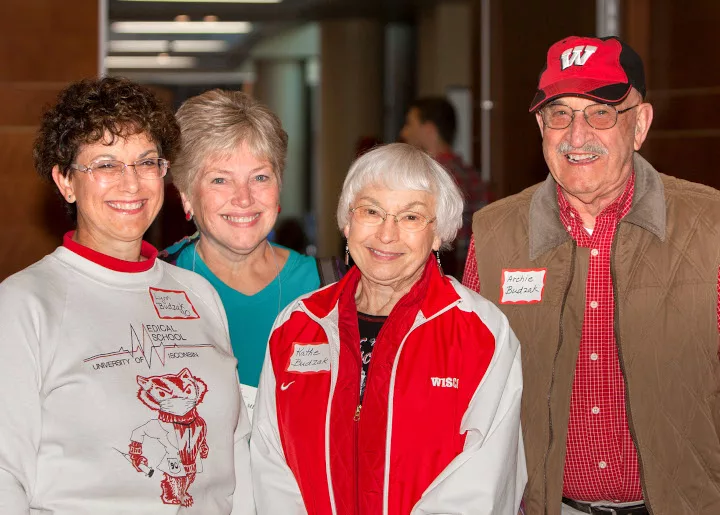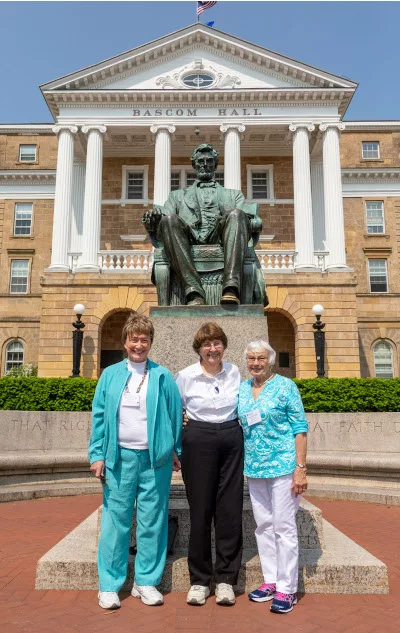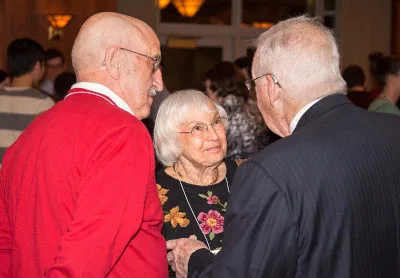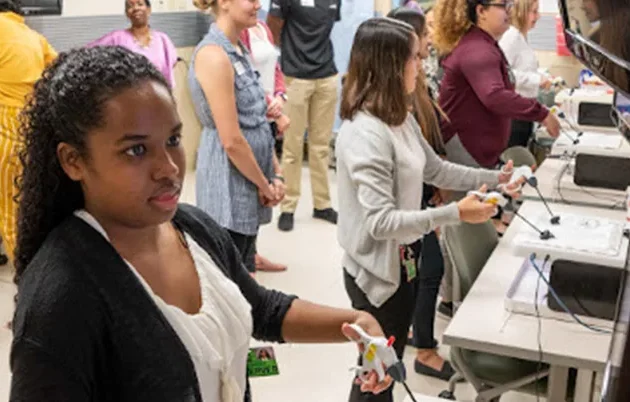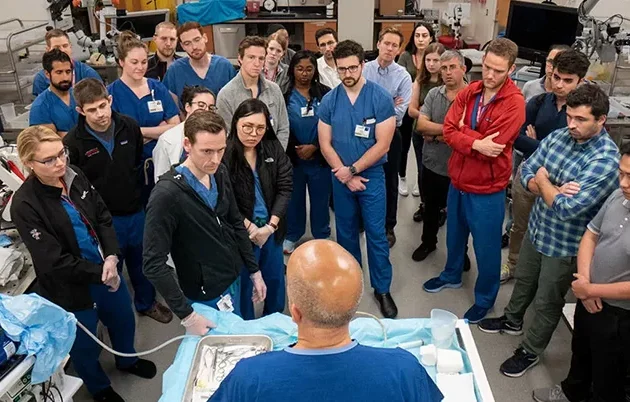Further fostering Badger spirit, Kathe and Archie Budzak raised two daughters — Lynn M. Budzak, MD ’90 (PG ’93), and Ann E. Budzak Garza, MD ’86 — who are SMPH alumnae.
Before she retired, Kathe Budzak was an urgent care physician at Dean Medical Center in Madison. Their daughters also established medical careers in their home state: Lynn Budzak in family medicine at the Veteran’s Administration Outpatient Clinic in Green Bay, and Ann Budzak Garza in pediatrics and child abuse care and prevention at Gundersen Health System in La Crosse.
A Wisconsin native, Kathe Budzak grew up in Racine with two siblings. She completed high school courses a year early and went on to Stephens College in Columbia, Missouri, where she was granted a high school diploma upon admission.
Following a year there, Kathe Budzak returned to Wisconsin and Door County, where her family spent summers. She resumed a relationship with a young man, who she married and followed to Luther College in Decorah, Iowa, to continue her studies. Realizing she was in an abusive marriage, she moved home to Racine and initiated a divorce. The following semester, she welcomed her first daughter. After time off to care for baby Ann, and with help from her parents, she began commuting to complete her undergraduate degree at UW–Milwaukee.
“It was a lot of work to attend college while raising a baby, but my parents were wonderful. Not everyone’s family would support them like mine did,” she recalls.
In a happy turn of fate, Kathe Budzak met her perfect mate, Archie Budzak, an Air Force veteran of the Korean War, who was a senior at UW-Milwaukee. After each had earned a degree—his in education with a biology major and physical education and history minors, and hers in zoology—they married in December 1961.
Archie Budzak was a teacher and coach in the Milwaukee Public Schools, and the couple welcomed baby Lynn the following year. While Kathe Budzak remembers being “a happy housewife,” she also yearned to use or further her education. She received encouragement from her dad, who valued education, as he had worked his way through boarding school and college to become a certified public accountant.
Kathe Budzak found no positions for a woman with a zoology degree. She thought about pursuing a medical technology career.
“In the back of my mind, I always wanted to become a doctor, so I attended night classes at UW–Milwaukee for required classes,” she says. “Because I didn’t have contact with other pre-med students, I had no idea how to study for the MCAT (Medical College Admission Test), so I read ‘Increase Your Word Power’ in the Reader’s Digest!”
Success followed, but unfortunately, Kathe Budzak experienced some gender bias.
“Marquette University returned my medical school application, $10 fee and photo, along with a letter stating that they felt children needed the emotional support of the mother in the home, so they could not consider my application,” she says.
